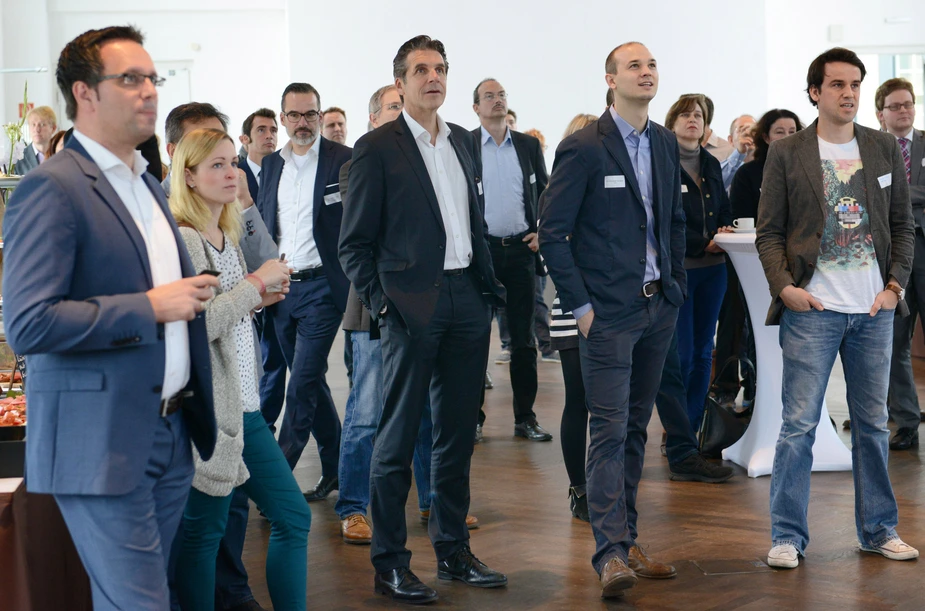Rocket-Ventures meets Adlershof
Berlin is a start-up capital, and now home to over 1,200 of these new companies. This boom is boosted by the trendy scene in Berlin’s city centre. And right in the lead: Rocket Internet. This incubator has set up a great many successful internet companies all over the world, including the online mail order house Zalando. Yet, there is another scene. The German „gruenderszene.de“ magazine accurately related to it as „somewhat different, but equally successful“. These are the Start-ups in Adlershof, where the two scenes intend to interlink to greater effect with the help of events like a Breakfast Session.
The Rocket Internet family includes EatFirst, a delivery service for fresh, healthy food in Berlin, the online credit marketplace Lendico, and ZipJet, a mobile cleaning and laundry service for Berlin. The company 5micron specialises in optical measuring methods and systems; Greateyes develops high-performance digital cameras, e.g. for spectroscopy; Graforce Hydro is working on an innovative technology for generating hydrogen; and Ice Gateway offers intelligent outdoor lighting solutions with machine-to-machine services. The last four were born and grew up in the Adlershof Technology Park.
Business to Consumer (B2C) – i.e. business lines with products and services for private consumers on the one side – and Business to Business (B2B) – high tech and highly specialised offers for business customers and industrial companies on the other. On the one, fast growth, expansive market penetration with huge capital investments, and web based information and communication technologies (ICT); on the other, long term corporate structuring in all-new technologies. Can these be reconciled despite their many differences?
In early October 2015, Berlin Partner für Wirtschaft und Technologie GmbH (Berlin’s economic development agency) and WISTA-MANAGEMENT GMBH ventured the attempt, and sent out invitations to a joint pitch in Adlershof. Two results: Adlershof products are in considerable need of explanation, and Rocket start-ups address their customers with greater emotional appeal. They exploit every opportunity to gain awareness.
Christoph Samwer, cofounder and Managing Director of Lendico, put the differences in a nutshell: “We focus on fundamental customer needs like food and laundry. We digitise and simplify learned processes.” High tech start-ups, on the other hand, are hallmarked by scientific work, and are often active on niche markets. They manufacture highly specialised products. The focus is not placed on the fastest possible scaling. They are not dedicated to becoming the top brand, but the leader in technology.
The evolutionary steps taken by technology driven companies are often time consuming. As a result, they do not receive feedback from the market until much later. This is completely different for ITC companies. “Our customers are our sparring partners,” explained Samwer, before adding: “Fail fast” as a maxim. In other words, mistakes should be made quickly. “We set up feedback systems that let us know what we’re doing right, what wrong, and what we can improve.” The focus is always on the question: How does it benefit the customer? This can definitely be a source of inspiration for high tech companies as well.
At the end of the event, there was unanimous agreement: There are points of contact between both start-up scenes. Combining knowledge of the technically feasible with ideas for innovative products yields a source of inspiration for mutual benefit. All that is needed, is that the two sides know of each other. And getting to know each other is the first step.
By Sylvia Nitschke for Adlershof Special
www.greateyes.de
5micron.de
www.graforce.de
www.ice-gateway.com
